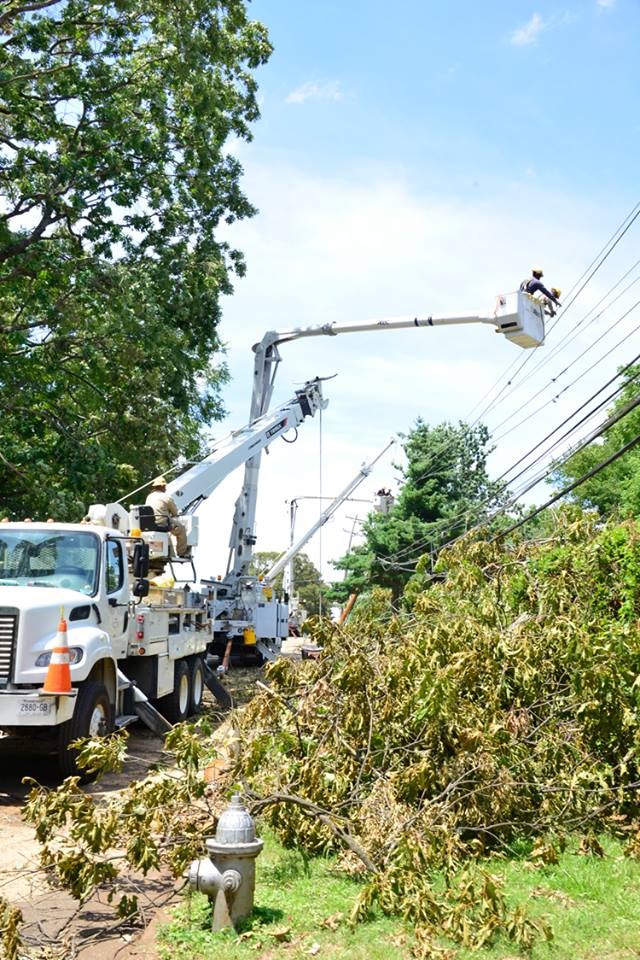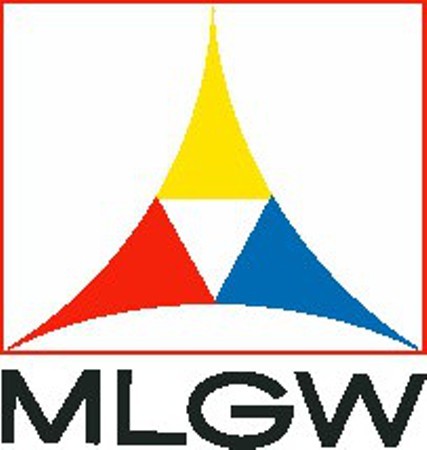Every year around this time, a dreaded white-and-blue envelope arrives in the mail. Some people, scared to view its contents, throw it on a desk or in a drawer unopened, hoping it will disappear. Others, anxious to see the damage, rip it open immediately.
It’s the end-of-winter Memphis Light, Gas and Water bill, the one that reflects all the energy used to heat homes in February, generally the coldest month of the year. Some people hold off on payment, risking cut-off. Others try to work out a payment plan, backing up their debt for months. And a few will try to argue their way out of paying a portion.
But residential customers are not alone. Hundreds of local businesses are in similar positions. Last week, the Flyer requested a list of all commercial MLGW customers that were at least $5,000 behind on their bills and 30 days or more late in making payments.
Topping that list was the Memphis Cook Convention Center, with a total debt of $801,205. When contacted, general manager Pierre Landaiche said the facility made a $288,078 payment last week, bringing the new debt total to $513,127.
“The Cook Convention Center was underfunded by the city and county,” says Landaiche. “Rate increases and additional consumption over the last couple of years were unanticipated, causing a deficit beyond our budget.”
Though he says they’ve been trying to make partial payments, the bill has been backing up since 2005. An average monthly bill for the convention center ranges from $85,000 to $95,000.
Landaiche says money is now being appropriated from the city and county, which jointly fund the facility, to cover the convention center’s obligation to MLGW. Some of the $513,127 is being disputed. Landaiche claims they were billed too much for heating during winter months, when the center was not being used.
At a city council committee meeting Tuesday afternoon, council member Deadrick Brittenum asked the city attorney’s office to look into whether or not the Cook Convention Center should be billed for water usage, since some government buildings get free water. Currently, the center is billed for water.
Landaiche says he hopes to have the entire bill resolved in about two weeks. “Obviously, we want the convention center to be current,” says Glen Thomas, a spokesperson for MLGW. “There are probably additional logistics involved with them as far as cut-off. That would have to be a pretty serious issue. Are they significantly over? Yes. Are we in danger of not getting the money? No. I think the convention center will pay up. We’d just like to see it happen sooner.”
Thomas says the utility’s cut-off policy is the same for both residential and commercial customers. MLGW sends out approximately 5,000 cut-off notices per day. Those are sent three days after the bill’s due date. If some payment isn’t received 21 days later, all service is cut off. The key, says Thomas, is working out a payment plan.
In second place for the highest unpaid bill was the city of Memphis, with $741,036 due to MLGW. But, according to city engineer Wain Gaskin, that number doesn’t reflect an outstanding debt.
“The amount our MLGW bill shows as overdue is actually the amount we’ve saved taxpayers since May 2004,” says Gaskin.
He says the city began replacing red and green incandescent traffic light bulbs in about 760 intersections with more energy-efficient LED bulbs at that time. The change-out was completed about three months ago, but Gaskin says MLGW’s billing system hasn’t caught up with the energy savings from the new bulbs.
“They’ve had difficulty with their automated system because traffic signals don’t have meters,” says Gaskin.
Gaskin says LED bulbs use 15 to 20 percent less energy than the old bulbs. While the city is still billed for the old bulbs, they only pay a portion of that total each month. For example, last month the city was billed $45,000 from MLGW for traffic lights, but Gaskin says they only paid $8,600. The remainder each month backs up in MLGW’s billing system, appearing as unpaid debt.
Thomas says he does not know enough about the city’s account to comment, but Gaskin claims the city and the utility have an agreement on the traffic bulb issue. The city pays MLGW a total of about $28 million a year for all city accounts.
The Memphis Housing Authority (MHA) shows an MLGW debt of $360,773, totaled from multiple accounts. But Yvette Camel-Smith, general counsel deputy executive director for MHA, says most of that debt is being disputed due to what she calls “mislabeling” by the utility. They’ve scheduled a meeting with MLGW to discuss the bills.
According to Camel-Smith, at least four of the five overdue accounts belong to other agencies. One property on Firestone actually belongs to the city’s division of Housing and Community Development, she says. Another two properties with outstanding bills, listed on Exchange and Fairview, were transferred to Uptown Square, but Camel-Smith says MHA is still getting the utility bills.
MHA isn’t the only commercial customer disputing its bill. Shelby County Government is past due with a $5,757 payment to MLGW. County spokesperson Gwendolyn McClain says the county audits its MLGW bills to make sure they agree with the totals, which usually run about $500,000 to $600,000 a month.
Though they paid most of bill, the $5,757 is being disputed. McClain was not sure what that amount was for, but she says it’s not uncommon for the county to find inconsistencies with part of their bill.
Blues City Baseball, the management company for the Memphis Redbirds, is in the red (no pun intended) with their MLGW bill. They’re listed as owing $70,816, but President Dave Chase believes some of that has been paid off since the Flyer requested its list, leaving them about $30,000 in debt.
“Since the bulk of our revenue comes in the summer, we tend to fall behind in the winter,” says Chase. “In-season, the ticket sales drive revenues up, and we get more caught up.”
Chase says the average monthly bill for the Redbirds and AutoZone Park runs about $30,000 a month from April to September during in-season and about $15,000 a month in the off-season.
Memphis Publishing Company, the parent company of The Commercial Appeal, owes $79,763 to MLGW, according to information generated by MLGW last week. Requests to interview someone at the daily newspaper were forwarded to their lawyer, who had not contacted the Flyer by press time.
And another Ford is late on his utility bills. Joe Ford, unsuccessful in a recent run for Congress, owes $8,115 for the utilities used in his campaign office. Other notable customers on MLGW’s overdue list: Church of God in Christ ($7,449), International Paper ($9,524), Muvico Theaters ($18,331), and Target House/ALSAC St. Jude ($19,999).
Thomas says it’s likely many of the hundreds of overdue customers on the list are working off their balances through payment plans. Others may have paid the day after the list was put out.
“We actively try to recover the money. We’ve begun an initiative to clean up some of these accounts very recently,” says Thomas. “There will be phone calls and letters.”
MLGW furnished the Flyer with a list of nearly 300 customers who had an outstanding unpaid balance of more than $5,000. Some of the more notable names and their bills included:
Blues City Baseball: $70,816
Town of Collierville: $75,784.75
Memphis Publishing Company (The Commercial Appeal): $79,763
Waverly Gardens LLC: $88,661.96
Veterans Administration Hospital: $167,011.47
Memphis Dept. of Public Works: $736,849.60
City of Memphis: $741,036.64
Memphis Cook Convention Center: $801,205.04
 MLGW
MLGW 